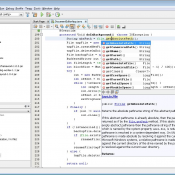With the looming demise of Google Reader (unless, of course, they change their minds) I’ve been casting about for a reader. For a number of years I ran my own aggregators, including UserLand Radio, Feed-on-Feeds, and currently Dave Winer’s River2 in the OPML Editor. Each had (or has) its own pros and cons that I’m not going to get into. I had moved to Google Reader because it had features I liked and it was available everywhere at any time. I don’t think it was perfect and there were things about it I found annoying (again not getting into that) but on the whole it was more useful than not.
What the choices for replacing Reader? Well, there are several, the best probably paid services that provide you with a host of features now tailored to remind you of Google Reader, good or bad. Interestingly the self hosted or desktop choices have not evolved much in the past 5 years, This is most likely due to to the ‘Google effect’. Once Google moves into a space the general sense is that that is it, Google wins and innovation tends to cease or at best slow to a crawl. So it seems to have been with news aggregators.
With Google now moving out of the space there is some sense of opportunity in the reader/aggregator space. The void left by Google Reader’s exit will no doubt spur some innovation as developers begin to look at RSS news feeds as a field worth exploring. I know I’m thinking about it.
What I’m thinking of is a system I can run from one of my Linux servers, that I can access from any device in a reasonable format and share the reader with friends. On the backend PHP using cURL and SimpleXML to access an OPML store of feeds, retrieve, parse, and archive items and display in a responsive frontend built on JavaScript and Bootstrap. Display options include a river of news format or various sorts. Items are marked to archive permanently or held for a certain number of days. Publishing features allow for the sharing of items via social nets like Twitter, Facebook, and LinkedIn. Multiple personas allow for profiles setups that will let users create collections that can be handled separately. User management is handled internally or thorough various social net APIs.
Of course it all gets open sourced. Hey, watch for it on GIthub. The goal here is to create something that lets me read the info I’ve decided I want to see, and share it as I will. I guess we’ll see what happens.

